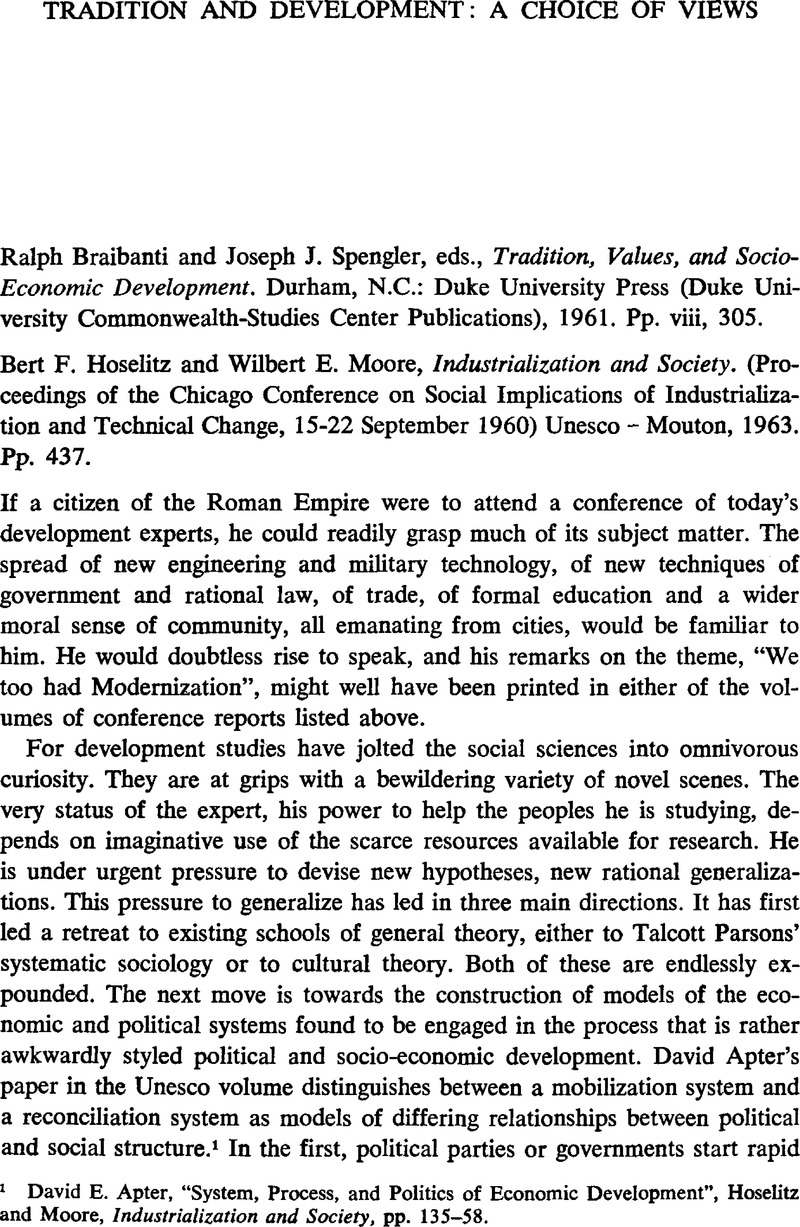Published online by Cambridge University Press: 03 June 2009

1 David E. Apter, “System, Process, and Politics of Economic Development”, Hoselitz and Moore Industrialization and Society, pp. 135–58.
2 S.N. Eisenstadt, “Problems of Emerging Bureaucracies in Developing Areas and New States”, loc. cit., pp. 159‘174.
3 For a move towards a comprehensive model based on measurable indices, see Deutsch, Karl W., “Social Mobilization and Political Development”, The American Political Science Review, LV (1961), pp. 493‘514.CrossRefGoogle Scholar
4 Bert F. Hoselitz, “Tradition and Economic Growth”, in Braibanti and Spengler, Tradition, Values, and Socio-Economic Development, pp. 83‘114.
5 M. J. Herskovits, “Economic Change and Cultural Dynamics”, loc. cit., pp. 114‘138.
6 Joseph J. Spengler, “Theory, Ideology, Non-Economic Values, and Politico-Economic Development”, loc. cit., pp. 3‘56.
7 Ishtiaq Husain Qureshi, “The Background of Some Trends in the Political Thought of Pakistan”, loc. cit., pp. 181‘211.
8 Khare, R.S., “Ritual Purity and Pollution in Relation to Domestic Sanitation”, The Eastern Anthropologist, XV (1962), pp. 125‘39.Google Scholar
9 M. J. Herskovits, in Braibanti and Spengler, p. 133.